The Best Protein Powder for Runners and When to Take Them [2024 Edition]
- December 6, 2021
- Last Updated: November 27, 2023
- 0 Comments
- Running
If you have questions about finding the best protein powder for runners, this in-depth post will answer them and help you decide whether protein powder for running in 2024 will work to your benefit.
As an Amazon Associate, I may earn from qualifying purchases.
Disclaimer: While I am a Registered Dietitian, this post is for informational purposes only, and is not meant to give medical advice. Please talk with your dietitian or medical care provider for individualized advice.
As runners, we’ve heard just about everything under the sun regarding protein powders.
Some fitness experts swear by them, while others claim that endurance runners don’t need that much protein.
So, how should runners approach protein powders—what’s the purpose, when should you take protein powder, and what brands are best?
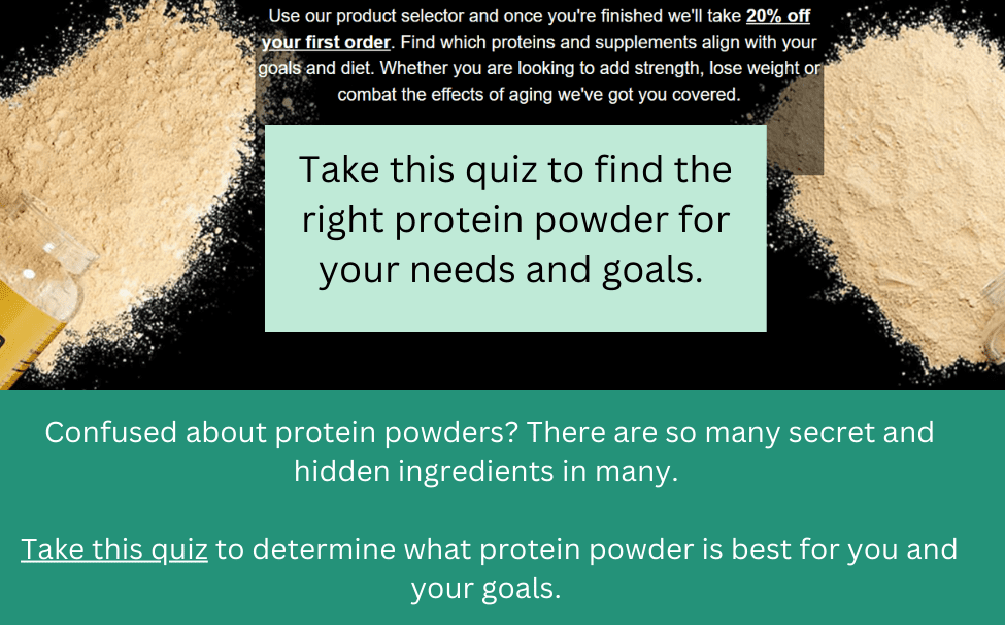
In This Article
Want your running nutrition questions answered?
Fill out this form to be matched with one of our dietitians.
What is Protein Powder?
Protein powders are dietary supplements that are really just concentrated proteins (strands of amino acids) sourced from both plant and animal foods.
There are several to choose from, including whey protein powders, soy protein powders, pea protein powders, plant based proteins, casein and more.
For more about supplements for runners, there’s a whole post about that topic, too!

As we will discuss in the post, many protein powders also contain other ingredients, fillers, sweeteners, vitamins and minerals.
When considering the best protein powder for endurance athletes, some of these ingredients may come into play for personal preference.
There are three different forms of protein powders:
- protein isolates – contain about 90-95% protein and therefore less carbs and fats per serving (you can read more about the protein isolate process here)
- protein concentrates – contain about 60-80% protein (the rest comes from carbs and fats)
- protein hydrolysates – enzymatic hydrolysis breaks down bonds between amino acids to be absorbed more quickly by muscles
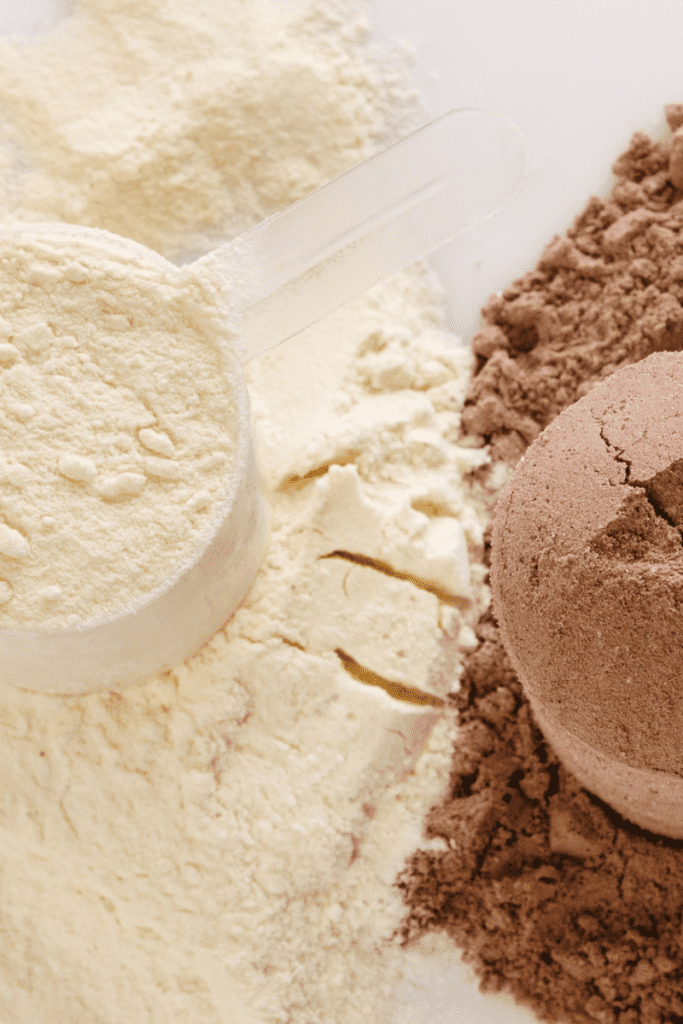
Should Runners Take Protein Powder?
The first question to address is, is protein powder necessary for running?
The purpose of supplementing with protein powder is to help meet protein needs. If protein consumption is not sufficient in the regular diet, protein powder may be helpful for endurance runners.
Especially with the strain that running places on the body, eating sufficient protein is key to preventing fractures, promoting muscle recovery, protecting long-term muscle health and more.
While carbohydrates are seen as the holy grail for endurance athletes (for good reason), protein for runners and athletes is extremely important for the recovery and functional perspective.
The importance of protein cannot be understated, especially from a recovery standpoint.
If protein consumption is not sufficient in the regular diet, protein powder may be helpful for endurance runners.
According to the International Society of Sports Nutrition position statement, protein intakes of 1.4 – 2.0 g/kg/day for physically active individuals is not only safe, but may improve the training adaptations to exercise training

Since many people are busy and may eat sufficient protein consistently throughout the day, protein powder is a convenient way to take protein “on the go” or recover from a workout and boost energy levels.
I love to blend it into things like smoothies (I always add it to greek yogurt smoothies), oatmeal, yogurt, baked goods and more.
For example, I used peanut butter protein powder in this protein granola recipe.
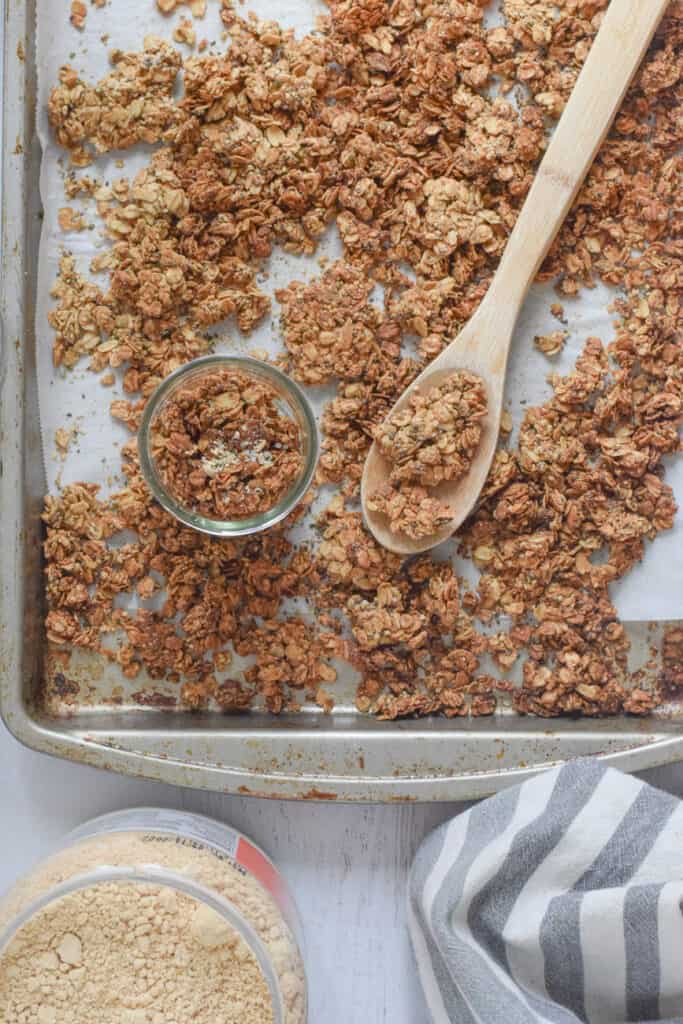
Runner Protein Needs
Specific protein needs vary from athlete to athlete and may be dependent on muscle protein synthesis goals. Hence, protein drinks for runners should be individualized.
Baseline protein needs are determined by nitrogen balance, a concept that essentially compares the amount of protein ingested to the amount of protein broken down in the body each day.
A person who is fasting or overtraining is likely in a negative energy balance, meaning muscle in the body is breaking down more quickly than protein is being taken in to replace it.
This also happens during injuries. You can read more about nutrition for injury recovery here.

Instead, athletes should prioritize maintaining a positive nitrogen balance, meaning they take in more protein than the body needs to keep up its current function.
A positive nitrogen balance will preserve lean tissue and build muscle in the athlete.
So, how much protein is needed to result in a positive nitrogen balance?
The amount of protein an athlete needs to maintain a positive nitrogen balance varies by sport and overall activity.
Most athletes, including runners, meet their protein needs by eating 1.2-1.6 grams of protein per kilogram of body weight per day.

When translated to pounds, this rounds out to about 0.55-0.73 grams of protein per pound of body weight per day.
In athletes who are gaining muscle, increasing endurance, or recovering from injury, protein needs will be slightly higher – 1.4-2.0 grams of protein per kilogram of body weight per day, or 0.64-0.90 grams of protein per pound of body weight per day.
When recovering from a half marathon or full marathon or intense workout, getting sufficient protein is optimal.
Is it Good to Drink Protein Shakes After Running?
When considering protein powders and supplements, the next logical question to consider is when to take them.
Beyond the amount of protein we eat, the timing of when we eat protein is also important.
Athletes should consume about 20 grams of protein every 3-4 hours to ensure that the muscles have a steady stream of amino acids to support growth and repair.
Consistent protein intake can also help with blood sugar management.
Most of this protein should come from whole food sources, but protein powder is an easy source of protein for 1-2 of these feedings.
And, if you’re following a cheap college meal plan, protein powder can be a great option in a pinch for a snack, or even meal, if you load it up.
Especially if you consider how many servings you get.
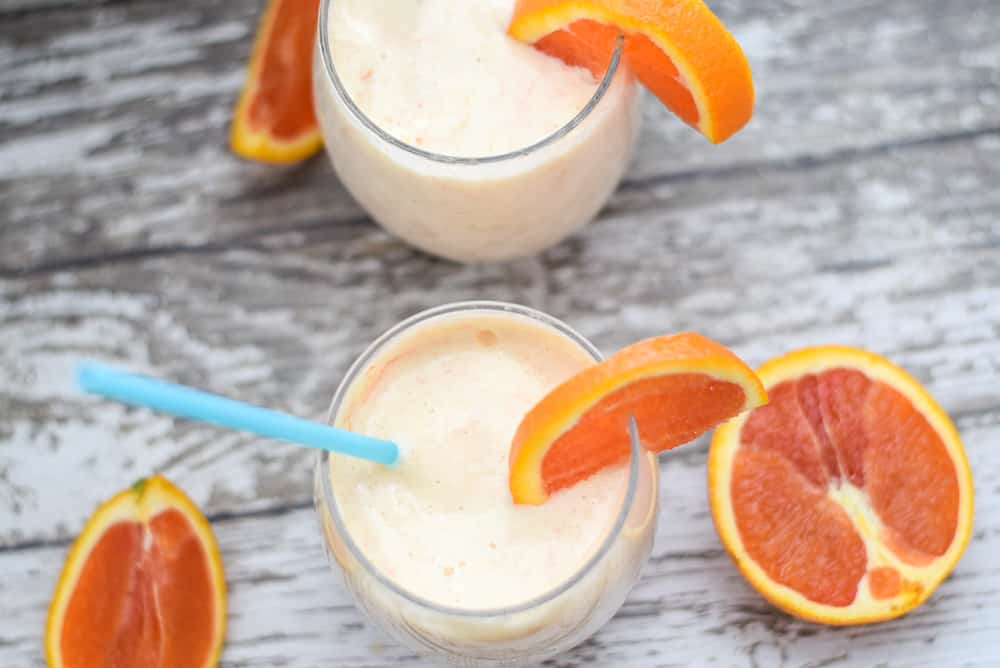
Let’s talk about protein before or after a workout.
Having a protein shake before a run isn’t the best idea because it may lead to bloating and GI disturbance, since protein takes a long time to digest.
Instead, carbohydrates before a run will give quicker, sustained energy.
Runners should prioritize a protein meal or protein shake after running, alongside carbohydrates, to initiate the muscle repair process.
Therefore, it would be more pertinent and prudent for a runner to drink a protein shake after a run vs. before a run.

Ideally, runners should eat 20-30 grams of protein, paired with 50-60 grams of carbohydrates, within 30 minutes of a workout, but no later than 2 hours after a workout.
Protein powder after running is an ideal recovery source, as the amino acids in protein powder are hydrolyzed, or partially digested, meaning they can be absorbed and utilized by muscles more quickly.
Plus, protein powder is normally mixed with liquid and consumed in liquid form, which speeds up digestion, helps hydration, and reduces the time needed for protein to reach the muscles.
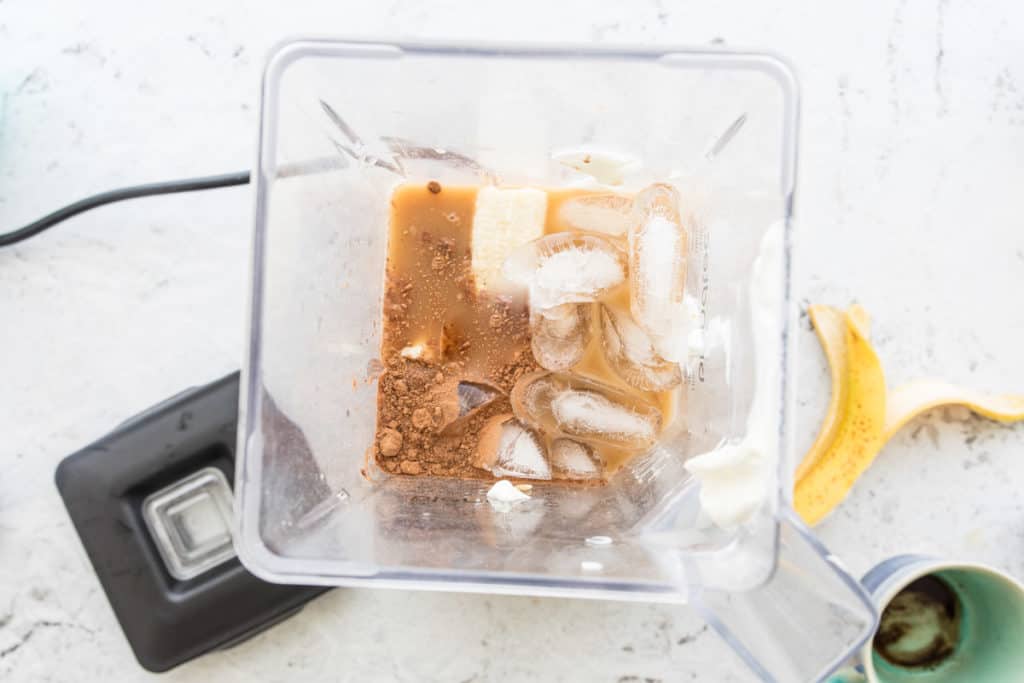
Protein Powder Before Bed
Another great time to consume protein powder is right before bed.
More research has been done recently on nighttime feeding, or the practice of eating before bed, and results have shown that a high-protein snack before bed can enhance muscle growth and repair while sleeping.
Here are some easy protein-rich snack ideas.
Additionally, eating before bed can also increase satiety, or feelings of fullness, in the morning.
Protein powder is a great choice for nighttime feeding, especially for athletes with sensitive digestive systems, because liquids are less likely to cause nausea or feelings of indigestion while sleeping.

How to Choose a Protein Powder
Now that we’ve covered when to take protein powder, let’s talk about what to look for in a protein powder.
A few factors, such as the quality of protein, are nonnegotiable, but other factors can be catered to your individual preferences.
First, your protein powder should be a complete protein.
A complete protein is a protein source containing sufficient amounts of all essential amino acids, which are the amino acids that the body cannot produce on its own.
All animal proteins are complete proteins, but most plant proteins are not.

Therefore, plant-based protein powders should contain protein from different plant proteins that complement each other and together form a complete protein.
However, even complete proteins vary in quality. The highest quality proteins have a high biological value, meaning a high amount of the protein eaten is absorbed and used by the body.
Animal protein sources, especially whey and egg, naturally have a higher biological value than plant-based sources, such as rice and soy.
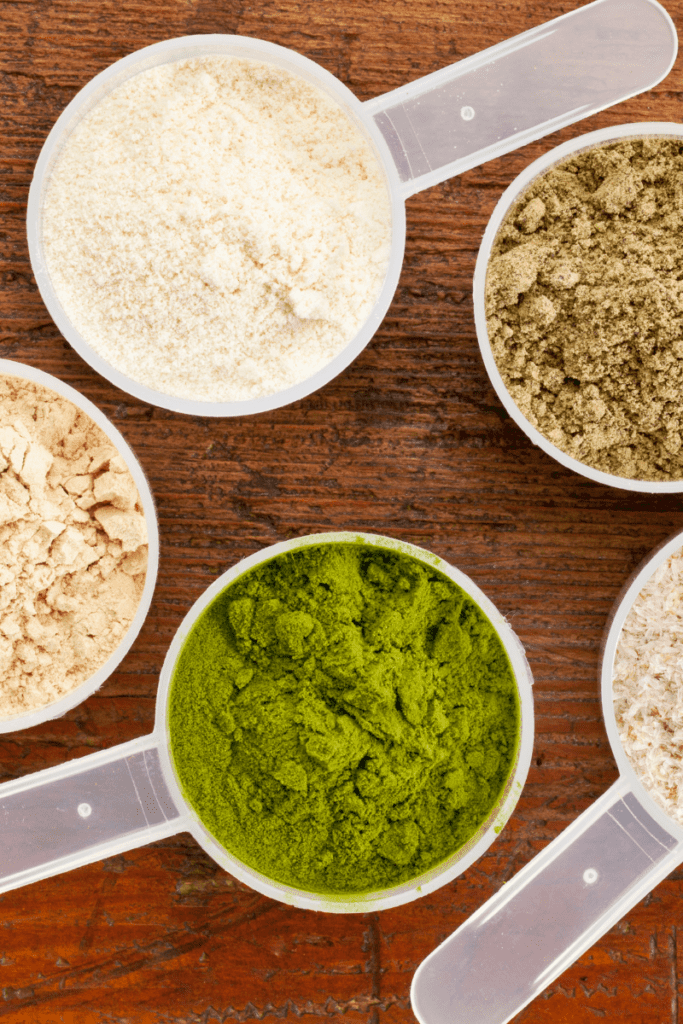
Other Ingredients To Look Out For
Besides the protein itself, protein powders may contain additional add-in’s, such as BCAAs, artificial sweeteners or flavors, thickeners and fillers, and micronutrients.
- BCAAs, or branched-chain amino acids, are a subcategory of amino acids that are specifically important for muscle growth and repair. They are naturally found in most protein blends, but additional amounts may be added. This post talks about some of the best BCAAs for runners.
- Artificial sweeteners mirror the structure of glucose, but their orientation is flipped. Because of this, they taste sweet, but cannot be absorbed by the body. Often, protein powders will include artificial sweeteners instead of sugar in order to fit diet culture’s appeal to low-calorie foods. However, many artificial sweeteners may negatively affect gut health, blood sugar levels, and more. Stevia is natural and typically more agreeable, but if you have a sensitive stomach or simply don’t like the taste of artificial sweeteners, check the label for these.
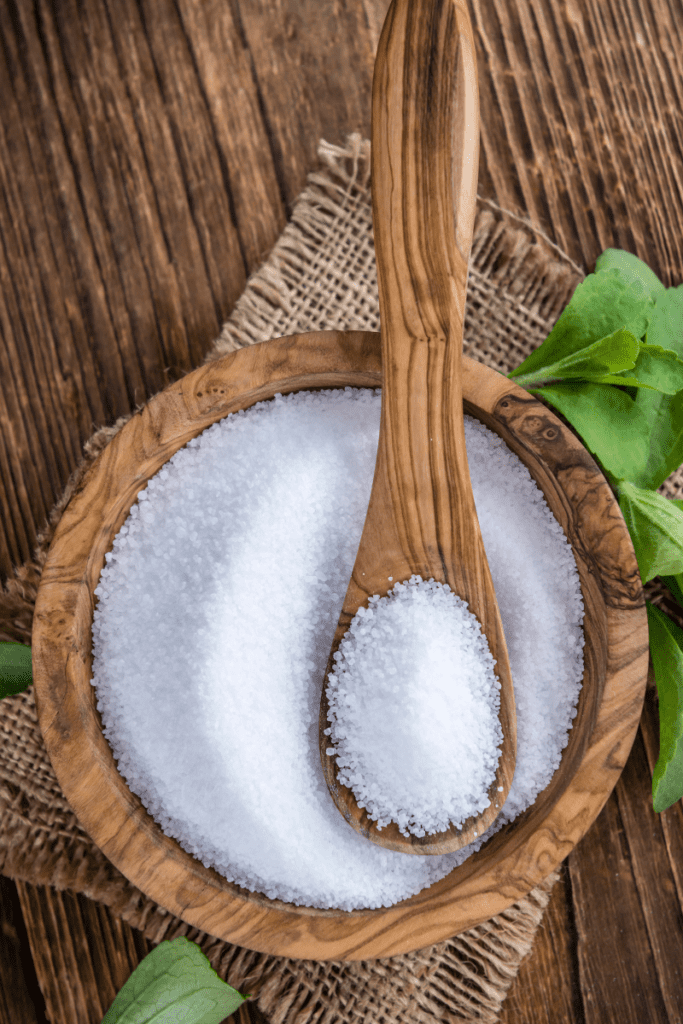
- Thickeners or Fillers – Protein powders may include a variety of thickeners or fillers to improve texture. For one, milk solids are a cheap bulking agent that can increase the volume of protein powder at little cost. Psyllium, cellulose, and coconut flour are all fillers in protein powder. Milk solids are not well-absorbed, and the body does not use them efficiently, which can cause issues for athletes who are lactose-intolerant. If possible, choose a protein powder without milk solids—you’ll get more for your money, and your body will thank you.
- Fortified nutrients – Protein powders may also be fortified with added nutrients to benefit the body, like vitamins and minerals. Most protein powders are a sufficient source of calcium, but vitamin D is needed to absorb calcium, so many brands add vitamin D to their blends.
The inclusion of some of these thickeners or fillers and ingredients is a sign of a lower-quality product and may cause digestive issues such as gas, bloating, and belching.
Similarly, xanthan gum, dextrin, arrowroot, and gelatin are thickeners that may also cause digestive issues.
The tricky thing about additives in protein powder is that protein powder is not regulated by the FDA.
Occasionally, the FDA will take action against a brand’s incorrect claims, but this is not the norm.
Instead, a good choice protein powder (or other supplement) can be certified by third parties that affirm the product contains what it claims to.
Both for quality and safety, it’s important to look for third-party certifications by organizations like Consumer Lab, NSF, Informed Choice, BSBG, or US Pharmacopeia.
Types of Protein Powders
The four most common protein sources for protein powders are whey, casein, egg white and plant-based blends.
Whey Protein
Whey is the first form of milk protein, and whey isolate is inherently better quality than whey concentrate, as it contains a greater percentage of protein, is more digestible, and is a better value financially.
I generally recommend whey protein for runners because it is easily digested (unless you have an intolerance), and has a great leucine content and has been well studied.
I personally love UCAN’s because it also has carbs too.
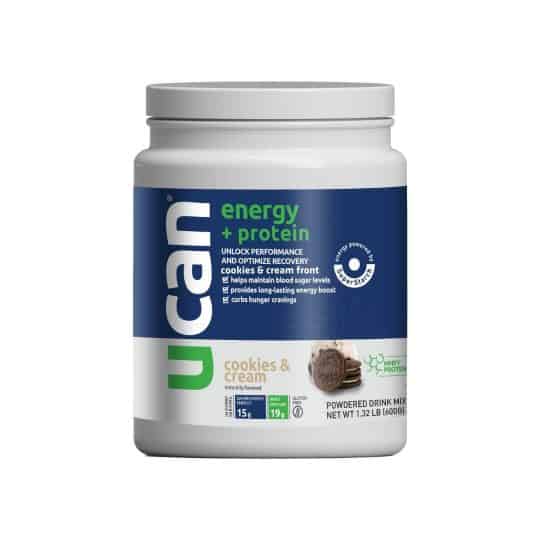
Casein Protein
Casein is the other form of milk protein, and it is slower-digesting than whey. Because of this, casein is not as ideal after a workout, as the protein takes longer to begin repairing muscles.
However, for the same reason, it is a perfect choice for supplementation before sleep, as amino acids will release slowly throughout the night and provide protein for muscles to repair over a longer period.
Egg White Protein
Similarly, egg white protein is releases more slowly than whey, making it a smarter choice for nighttime supplementation than post-workout.
Compared to casein, egg white protein has a higher biological value and is more readily absorbed, making it higher quality than casein.
Plant Based Proteins
Plant-based protein blends are most variable in quality. These blends may contain protein from rice, soy, hemp, pea or more sources, so the biological value differs depending on the blend.
Plant-based protein powders are great for those with dairy allergies, those following a vegan runner’s diet or plant based lifestyle, or even those with taste preferences.
If looking for protein shakes for teenage athlete nutrition, read the ingredients carefully.
You want to avoid certain additives, caffeine and make sure they are third party tested.
The Best Protein Powders for Runners
Here are some of the most well-researched, recommend protein powders for running.
Things to consider when choosing protein for running – protein source (ie- whey, pea, casein, etc.), taste, artificial sweetener or thickeners, other qualities (BCAAs, etc.).
Legion Whey+ Whey Isolate Protein Powder
Legion has been one of the leading brands for protein powder for a couple of decades now. Their Whey+ contains 22 grams of protein per serving and 5.6 grams of BCAAs.
This protein powder is available in 10 flavors, all of which are sweetened with stevia, not added sugars or other non-nutritive sweeteners. Legion does contain xanthan gum and sunflower lecithin, which are thickeners, but the brand quality has been backed by various organizations.

Orgain Organic Protein Plant Based Protein Powder
Most plant proteins are not complete proteins, but Orgain has created a blend of pea protein, brown rice protein, and chia seed protein that packs in 21 grams of protein per serving with all the essential amino acids in adequate amounts.
This is my go-to protein powder.
Orgain is sweetened partially with stevia and partially with erythritol, which may cause digestive issues for those with sensitive stomachs or runners stomach. Therefore, avoid before exercise.
Further, a bulk of the powder’s volume is fillers and thickeners, so those with sensitive stomachs may want to start slow with this one.

Optimum Nutrition Gold Standard Whey
Similar to Legion, Optimum Nutrition has been in the protein powder game for a while. Their popular whey protein has 24 grams of protein and 5.5 grams of BCAAs and even comes in 20 flavors.
However, they use a blend of whey protein isolate, whey protein concentrate, and whey peptides, and whey protein isolate alone is the most efficient choice.
Plus, the protein powder is sweetened with two artificial sweeteners that may cause GI issues.

Vega Sport Premium Plant-Based Protein
With 30 grams of complete protein and 5 grams of BCAAs per serving, Vega Sport is another great option for vegan or dairy-free athletes.
This plant-based protein is NSF Certified, sourced from pumpkin seeds, pea protein, sunflower seeds, and alfalfa, and it also contains probiotics for gut support and tart cherry for recovery.
Even better, it’s sweetened with stevia and has only natural colors and minimal fillers.

Now Sports Beef Bone Broth Powder
This bone broth powder boasts an impressive 28 grams of protein per serving, but 70% of that protein is collagen, so it’s best for general bodily support, not post-workout supplementation.
Collagen for runners may be helpful in certain situations.
Still, this protein powder is a complete protein, and it’s also paleo and extensively third-party certified, making it a great choice for runners with dietary restrictions who struggle to eat enough protein in general.
This would also be a great option for protein powder before bed.

Garden of Life Raw Organic Protein Powder
For athletes with digestive issues, Garden of Life has you covered. Their raw blend has 22 grams of complete protein and 4 grams of BCAAs per serving sourced from 22 raw and organic sprouts.
They also add in fat-soluble vitamins and probiotics for gut health.
However, one of the beneficial parts of most protein powders is that the protein is purposefully partially denatured to make it easier to digest and supply to the muscles more quickly.
Garden of Life takes pride in not denaturing its proteins, but this means that their product is not as easily usable for the body.

Naked Nutrition Naked Pea Protein
Naked Nutrition contains 27 grams of complete plant-based protein per serving, and it actually gives you a breakdown of the amino acid profile, including 5.7 grams of BCAAs.
The only—yes, the ONLY—ingredient is yellow pea protein, meaning this protein powder is completely free of additives, fillers, and thickeners.
This pro also means that the blend is unflavored, so toss it in a smoothie with some fruit or shake it with chocolate milk to make it more enjoyable.
Momentous Grass Fed Whey Isolate
Momentous is a little pricier but it’s a very high quality protein. In isolate form, it yields the highest concentration of protein that is the most broken down and easiest to digest.
They also have an added enzyme blend to help with digestion. They are third party tested, earned NSF and Informed Choice certification.

BulkSupplements, Egg White Protein
Similar to Naked Nutrition blends, BulkSupplements has one ingredient, which is egg whites.
Like Naked Nutrition, BulkSupplements has no artificial colors, flavors, or sweeteners, and it has been certified by multiple third parties.
Just make sure to add some other flavors to make it more palatable!

Nutiva Organic Hemp Seed Protein
Nutiva is another plant-based complete protein, but it only contains 15 grams of protein per serving, so you’ll need one and a half or two servings after a workout to make sure the body gets enough protein.
On the plus side, hemp seeds contain tons of iron, magnesium, and fiber, so you’re getting a well-rounded supplement, even though the only ingredient is hemp seeds.
If you don’t mind the additives, Nutiva also offers vanilla and chocolate flavors.

Kaged Muscle Kasein Micellar Casein Isolate
Casein is a great option for athletes who want to consume a milk-based protein but struggle to digest lactose.
Kaged’s Kasein Micellar Casein Isolate contains 25 grams of protein and 4.8 grams of BCAAs per servings, is low in lactose, and is free of artificial colors or flavors.
Casein digests much slower than whey, so Kaged advertises their product to be used before bed, in order to supply a steady release of amino acids while sleeping.
This protein powder is a great option for athletes who want to supplement protein at night to increase their nutrient intake or aid in recovery.

Want your running nutrition questions answered?
Fill out this form to be matched with one of our dietitians.
Wrap Up: Protein Powder for Running
There are both pros and cons to using protein powders for running, and just in general.
And preferences for protein powders for female runners may vary compared to those for men.
Here are some of the key things to consider.
Pros of Protein Powders After Running
Protein powders can be great after a long run, when you have no appetite but need to recover!
- Convenience – As I tell my athletes, if its convenient, they will stick to it. Convenience is so important in sustainable habits!
- Quality – Many of these products are a good quality, which helps their function.
- Enhance protein intake and timing – For those who just don’t eat anything at all after a workout, including a protein shake after running could be instrumental in facilitating better recovery and avoiding relative energy deficiency.
Cons of Protein Powders
- Potential contaminants – As mentioned above, there could be other ingredients, fillers and even contaminants in protein powders. The Clean Label Project studied 134 high selling protein powders and found that up to 75% of them had lead levels, and more than half tested for BPA. Soe also had mercury, arsenic and cadmium in them!
- Excessive protein intake – While protein is important, you don’t want it to displace carbohydrates and fat. Too much protein intake is not helpful, as the body can’t absorb excess amounts, and it will be stored as fat. Excessive protein can also lead to digestive issues and kidney problems.
- Cost – High quality protein powders do come with a price tag, and the cost of these can add up quickly, especially when you compare it to the cost of a high quality protein food, such as poultry, tofu or eggs. Protein powders are more expensive and not any better than high biological protein foods.
As with anything, weigh both sides to see what works best for your lifestyle. I hope this helps you choose a solid protein powder for your run, if you choose to do so.
Support Bucket List Tummy



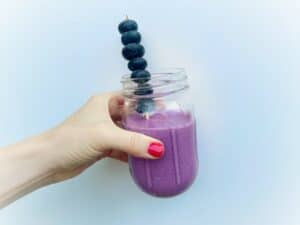

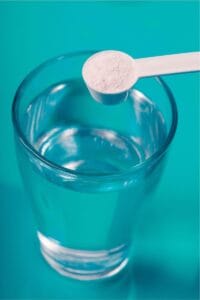

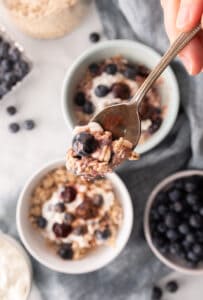

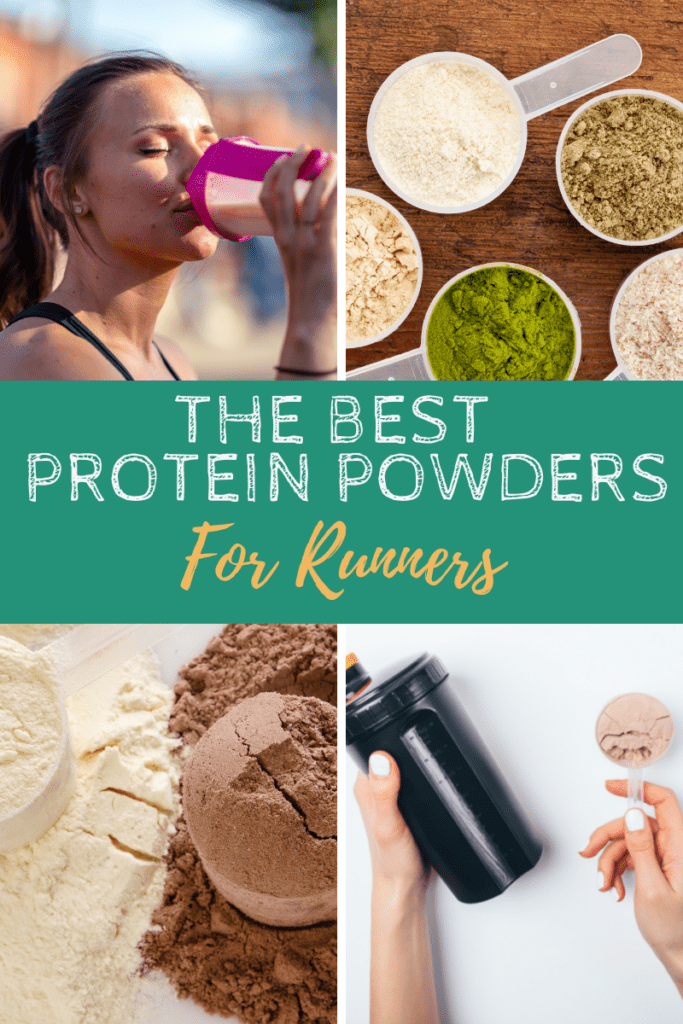












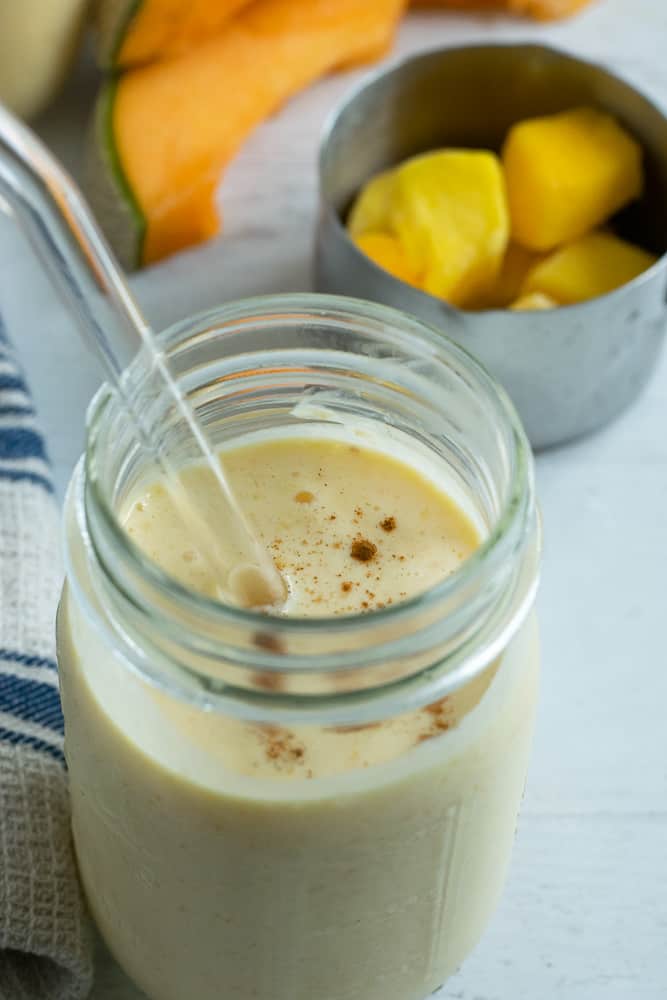



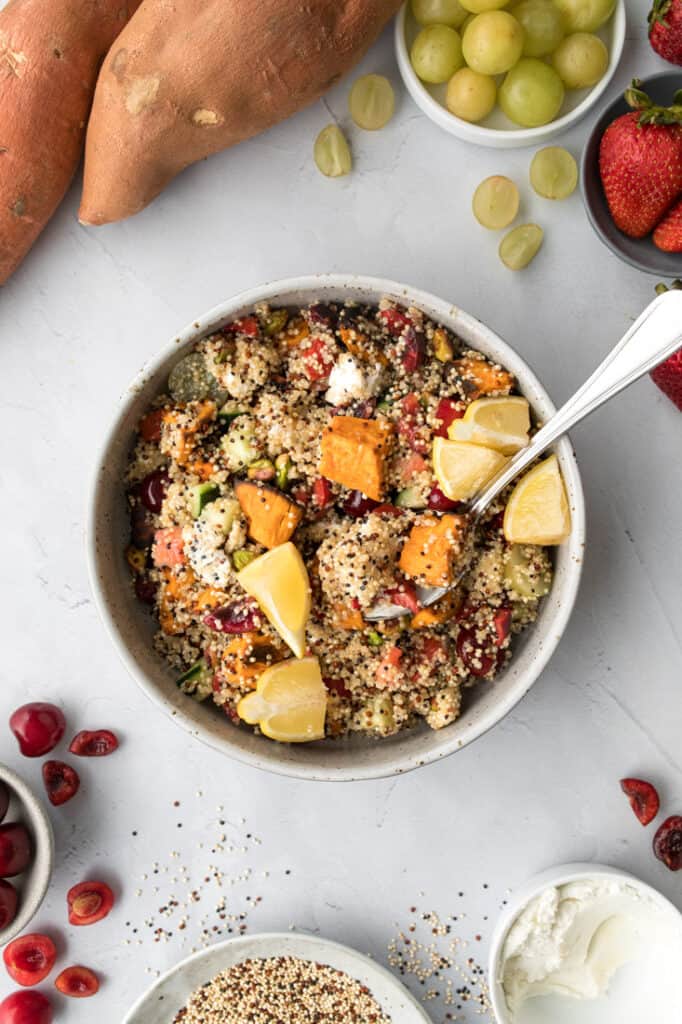

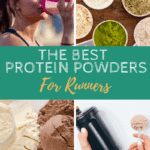
Like This Content?
Support Bucket List Tummy